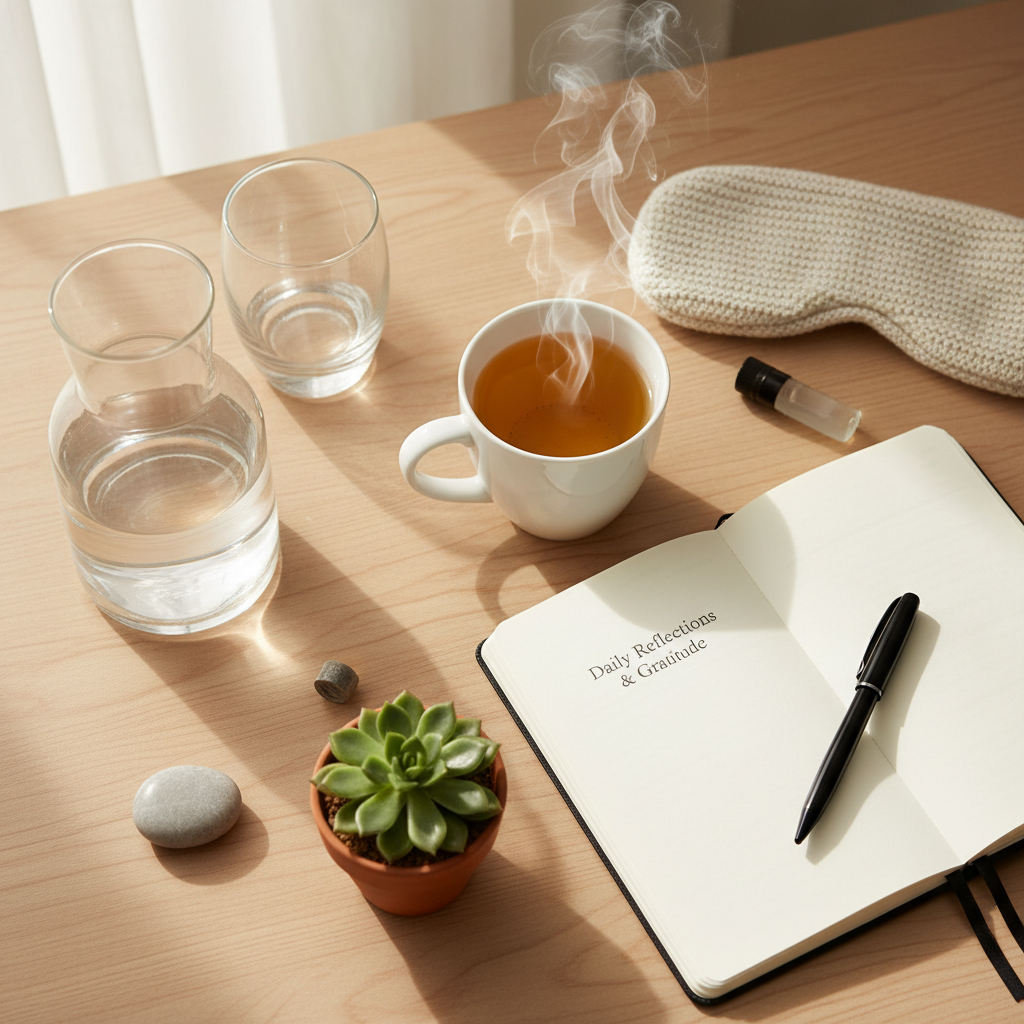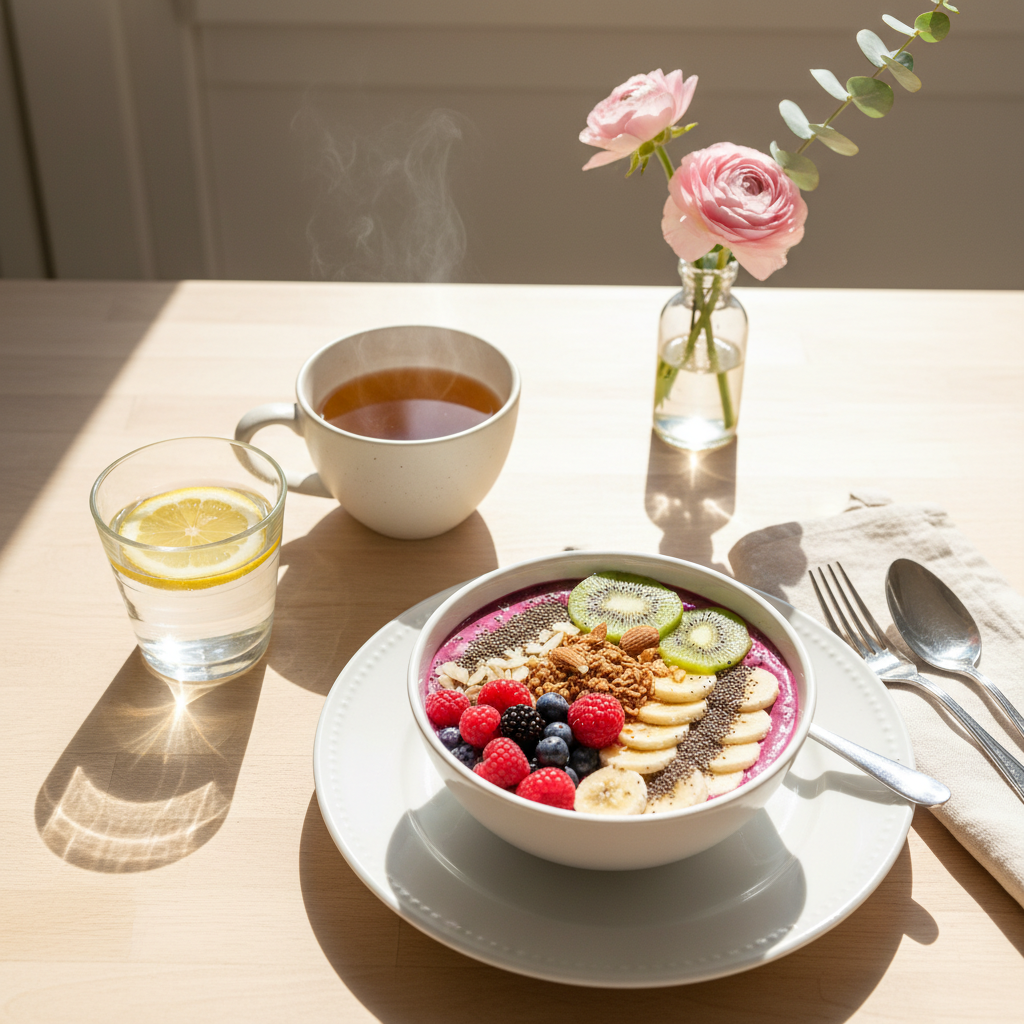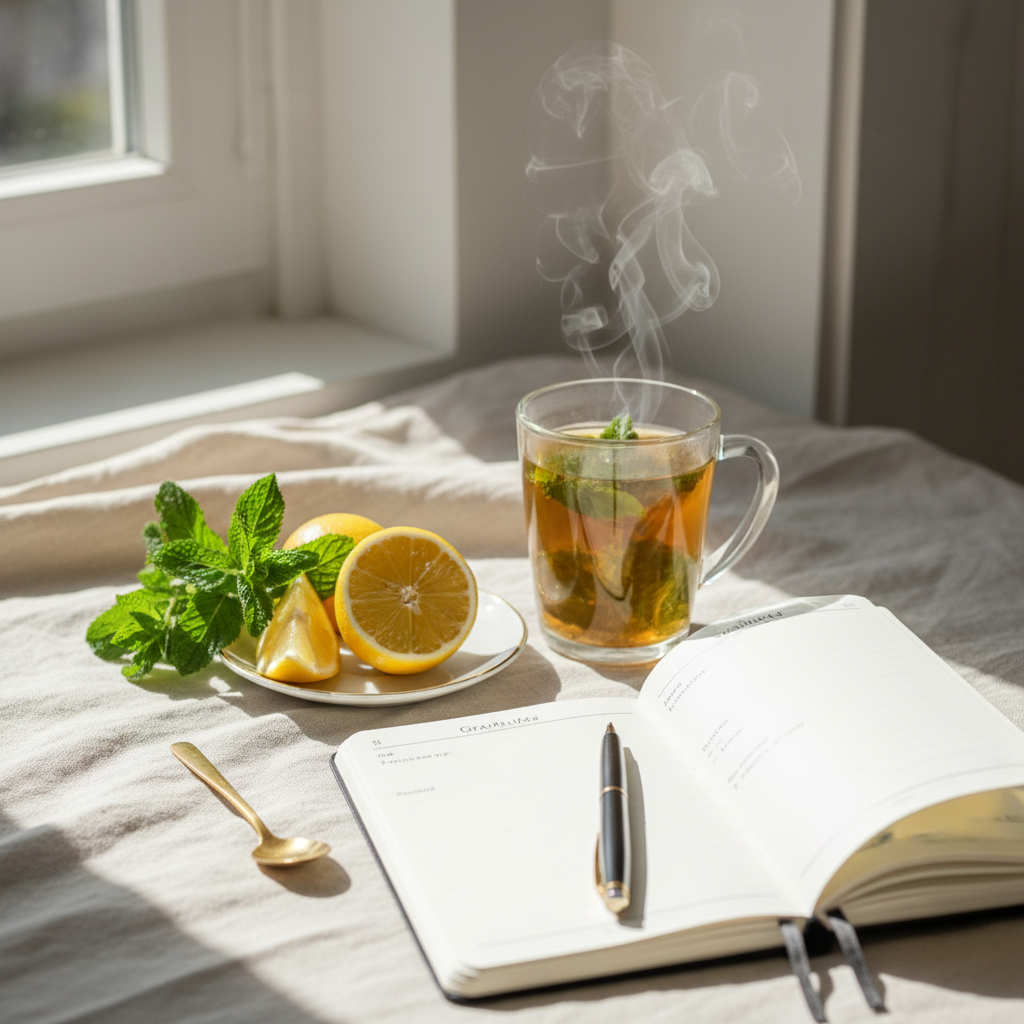Daily Self-Care Habits for Stress Reduction: Easy Ways to Relax Every Day

Why Bother With Daily Self-Care Habits for Stress Relief?
Stress can be an unwelcome guest that disrupts your daily life, causing headaches, mood swings, and sleepless nights. Developing daily self-care habits for stress reduction acts like a protective shield for your mental health, turning overwhelming anxiety into manageable calm. By building these simple, consistent routines, you put your wellbeing first without massive life changes.
Think of it like putting your phone on airplane mode—creating space for peace amidst the chaos. From personal experience, incorporating these habits brings real relief and a smoother day-to-day rhythm.

7 Essential Daily Self-Care Habits to Reduce Stress
1. Practice Mindfulness or Deep Breathing (5 minutes)
You don’t need to levitate or chant to benefit from deep breathing. Just 5 minutes focusing on your inhales and exhales, like box breathing (inhale 4 seconds, hold 4, exhale 4, hold 4), can calm your nervous system effectively. This simple mindfulness exercise offers a powerful, spa-like reset during any hectic day.
2. Stay Hydrated Throughout the Day
Water plays a crucial role in keeping your stress levels down. Dehydration can increase anxiety and cause brain fog. Carry a water bottle everywhere, aiming for 6–8 glasses daily to boost patience and reduce headaches—which also means more justified breaks.
3. Engage in Physical Activity
Movement is nature’s natural stress reliever. Whether a 30-minute walk, dancing in your kitchen, or simple stretches, physical activity releases endorphins that elevate mood and reduce tension. Morning walks especially act like caffeine for the soul—no jitters included.
4. Maintain a Consistent Sleep Schedule
Sleep resets your brain and balances emotions. Aim for 7-8 hours nightly, reduce screen time 30 minutes before bed, and engage in calming activities like reading non-stimulating books. Quality rest is a cornerstone in daily self-care habits for stress reduction.
5. Journal Your Thoughts and Gratitude
Journaling lets you unload mental clutter by expressing stressors and noting what you’re grateful for. This practice is like organizing your mind’s filing cabinet, bringing clarity and positive focus.
6. Dedicate “Me Time” Daily
Uninterrupted “me time” for 10–15 minutes—whether enjoying tea, creative hobbies, or your favorite TV show—recharges your emotional batteries. Consistent short breaks promote resilience and reduce daily tension.
7. Limit Screen Time and Social Media Use
Cutting back on endless scrolling helps clear mental clutter. Try setting phone-free zones, like during meals, or use app timers to manage usage. This reduces stress triggers and improves your mood.

Tips From My Experience: Why These Habits Actually Work
- Consistency is key. Like brushing your teeth, daily practice weakens stress’s hold.
- Customize your routine. Personalize your habits to fit your style—swap journaling for audio stories if preferred.
- Stack habits. Combine routines strategically — for example, add deep breathing after brushing teeth.
- Be kind to yourself. Embrace setbacks; reset and keep going without judgment.

Why These Habits Aren’t Just Some Trend — They’re Deeply Rooted in Culture
Self-care is far from a modern fad—it’s intertwined with global traditions like Japanese tea ceremonies and Indian yoga. These cultural rituals honor mindfulness and wellness, reminding us that daily self-care habits for stress reduction form the essential foundation for a balanced life, not just a side task.
Still Reading? Wow. You’re Officially My Favorite. Here Are Some Resources to Level Up Your Self-Care Game
- Mindfulness Meditation for Beginners – Perfect starting point for mindfulness practice.
- Effective Journaling Techniques for Mental Clarity – Transform writing into a calming ritual.
- Quick Home Workouts for Stress Relief – Exercise without the gym fuss.
- Healthy Sleep Habits You Can Start Tonight – Optimize your nighttime routine.
For expert advice, check out:
CDC on Managing Stress
NHS Tips to Reduce Stress
Harvard Health on Reducing Daily Stress


